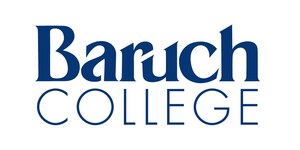
Baruch College Professor Leads NIH Study On Weight Loss Interventions
Study shows that group-based weight loss treatment is effective whether led by health professionals or by peer counselors
NEW YORK, Oct. 9, 2012 /PRNewswire/ -- A new National Institutes of Health (NIH)-funded study conducted at Baruch College and published in Obesity found that overweight and obese adults who participated in three different weight loss treatments, all involving intensive, multi-component counseling delivered in groups, lost significant weight after 48 weeks whether the treatment was led by a health professional or by someone who had previous weight loss success.
(Photo: http://photos.prnewswire.com/prnh/20121009/NY89964-INFO)
This randomized clinical trial led by Angela Marinilli Pinto, PhD Assistant Professor of Psychology at Baruch College, is the first to compare professionally delivered group-based behavioral weight loss treatment– considered the "gold standard" for treating moderate overweight and obesity- to Weight Watchers, which is led by trained peer counselors who have achieved their own successful weight loss. The findings open up the possibility of offering effective, affordable weight loss options to more Americans.
In this study, 141 overweight and obese men and women were randomly assigned to:
- 48 weeks of behavioral weight loss treatment delivered by a health professional,
- 48 weeks of Weight Watchers, where group support is led by Weight Watchers members who have successfully achieved and maintained a healthy goal weight,
- Or a combined treatment consisting of 12 weeks of behavioral weight loss treatment delivered by a health professional followed by 36 weeks of Weight Watchers.
Weight Watchers was chosen because it is the largest commercial program in the United States and is behaviorally oriented and focuses on modifying diet and increasing physical activity to produce weight loss. The investigators hypothesized that the combined treatment would produce better weight losses than Weight Watchers alone. Assessments were conducted at baseline and weeks 12, 24, and 48, with weight change as the primary outcome.
All groups lost weight, but contrary to expectations, Weight Watchers participants lost more weight, on average, at the end of treatment compared to participants in the combination approach (mean weight loss in the professionally led program was not significantly different from either group). In fact, 37% of Weight Watchers participants lost 10% or more of their starting weight compared to 15% of combined group participants and 11% of participants in the professionally led group.
Results of the study also showed that better meeting attendance was associated with greater weight losses during the first 24 weeks in all treatments. In the Weight Watchers group, this relationship was maintained even in the second half of treatment, suggesting that individuals who continue to stay involved in the Weight Watchers program do better.
"This study is important because, with almost 70% of American adults classified as overweight or obese, there is a need to provide practical treatment solutions that are effective, accessible, and affordable," Dr. Pinto explained. "Results of this study demonstrate that the Weight Watchers program can produce clinically meaningful weight losses." The cost of joining Weight Watchers is approximately $10 per week, which includes member registration, weekly meetings, and access to online resources.
This study (A.M. Pinto et al: Combining behavioral weight loss treatment and a commercial program: a randomized clinical trial. Obesity 2012; DOI: 10.1002/oby.20044) was funded by the National Institute of Diabetes and Digestive and Kidney Diseases (NIDDK) of the National Institutes of Health. The mission of the NIH is to seek fundamental knowledge about the nature and behavior of living systems and the application of that knowledge to enhance health, lengthen life, and reduce the burdens of illness and disability.
About Baruch College:
Baruch College is a senior college in the City University of New York (CUNY) with a total enrollment of more than 17,000 students, who represent 160 countries and speak more than 100 languages. Ranked among the top 15% of U.S. colleges and the No. 5 public regional university, Baruch College is regularly recognized as among the most ethnically diverse colleges in the country. As a public institution with a tradition of academic excellence, Baruch College offers accessibility and opportunity for students from every corner of New York City and from around the world. For more about Baruch College, go to http://www.baruch.cuny.edu/.
SOURCE Baruch College






Share this article